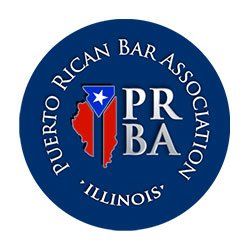CLIENT LOGIN
×Real Estate
Illinois Foreclosure Process
A foreclosure in Illinois is judicial, meaning that it is administered through the courts. A judgment of foreclosure can be obtained in as little as 90 days assuming service on all defendants at the first issuance of summons and assuming no opposition from any defendant. Due to the 90-day reinstatement period from the date of service, a judgment cannot be entered prior to that time. Due to the statutory redemption periods, a sale may not occur for anywhere from one to three months after the judgment of foreclosure is entered. The court may also extend the redemption period in certain cases.
PRE-FORECLOSURE PROCESS
Before a lender forecloses a borrower’s Note and Mortgage, a title search should be conducted. Any liens that appear senior to the lender’s lien should be addressed prior to foreclosure, or the purchaser at the sale will take the property subject to the senior lien. All junior lien holders must be named as defendants in the lender’s foreclosure suit to ensure title is free and clear of liens at the time of the foreclosure sale.
COURT PROCESS
Upon a borrower’s default, a lender can file a Complaint to Foreclose Mortgage with the court. The Complaint is then served on the borrower and any other named defendants. If a defendant cannot be found, Illinois law allows for service by publication. Once service is obtained, a defendant has 30 days to file an Answer with the court. If the defendants fail to file an Answer, the court will enter an order of default if requested. If the borrower or other lien holder files an Answer contesting the foreclosure, parties can litigate the matter and possibly go to trial.
Once judgment is entered in favor of the lender, the borrower has a statutory 90-day redemption period before a sale can take place. The court can shorten this to a 30-day redemption period, if the property is abandoned. The court also has the authority to extend the redemption period.
SHERIFF’S SALE
The sale date must be after the expiration of the applicable redemption period. A Notice of Sheriff’s Sale is published in a local newspaper in the county where the property is located once a week for three weeks. Not less than seven days after the final notice of sale is published, a Sheriff’s Sale is held. The lender provides the opening bid which is usually the full amount owed to the lender by the borrower. The person with the highest bid at the sale receives a Certificate of Purchase.
Following the sale, the Sheriff or selling officer must make a Report of Sale within 10 days. A Motion to Confirm Sale must then be filed and the sale confirmed by the court. Following confirmation, the Sheriff’s Deed is issued.
Fair Housing & Predatory Lending
FEDERAL FAIR HOUSING ACT
The U.S. Department of Housing and Urban Development (HUD) Office of Fair Housing and Equal Opportunity (FHEO), administratively enforces Federal statutes, executive orders and regulations designed to afford all persons an equal opportunity to live in housing of their choice and to participate in HUD-assisted programs and activities. The Fair Housing Act, Title VIII of the Civil Rights Act of 1968 , as amended, prohibits discrimination in the sale, rental, and financing of dwellings, and in other housing-related transactions. The following types of discrimination are prohibited:
- Race
- Color
- National Origin
- Religion
- Sex
- Familial Status (Families with Children under 18)
- Disability
STATUTES AND REGULATIONS
Federal
- Fair Housing Act
- HUD Fair Housing Regulations
- HUD and DOJ Joint Statement on Reasonable Accomodations
- HUD and DOJ Joint Statement on Reasonable Modifications
State
Local
Finance
We can facilitate the financing of any project, whether using conventional lending or more unconventional sources including syndications, synthetic leasing, tax-deferred exchanges, tenant-in-common trusts, securitization and real estate investment trusts (REITs). Our lawyers advise owners, syndicators, underwriters, and investors on financing strategies, and are nationally recognized for preparing and critiquing disclosure materials and risk factors involved in private placements.
Real Estate Asset Program
Our Real Estate Asset Program (REAP) lawyers assist clients through the evaluation of their real estate and facility portfolios to identify ways to gain fiscal, management, and financial value. Our goal is to convert your real estate holdings from a liability to a performing asset.
Transactions
We assist clients in selecting and acquiring land for location or relocation of all types of projects including plants, manufacturing facilities, office complexes, sports facilities, resort properties and headquarter buildings. We handle all aspects of an acquisition, including negotiation of construction and permanent financing arrangements, acquisition agreements, building and architectural agreements, leases and management agreements and resolution of title deficiencies and analysis of zoning, planning and land-use issues.
MAIN OFFICE
SECOND OFFICE
THIRD OFFICE
By Appointment Only
500 Lake Cook Road, Suite 350
Deerfield, IL 60015
FOURTH OFFICE
By Appointment Only
18W140 Butterfield Road, 15th Floor Oakbrook Terrace, IL 60181
FIFTH OFFICE
By Appointment Only
3390 Mary Street
© 2021 Weiss Ortiz P.C.. All Rights Reserved. Terms & Conditions
















